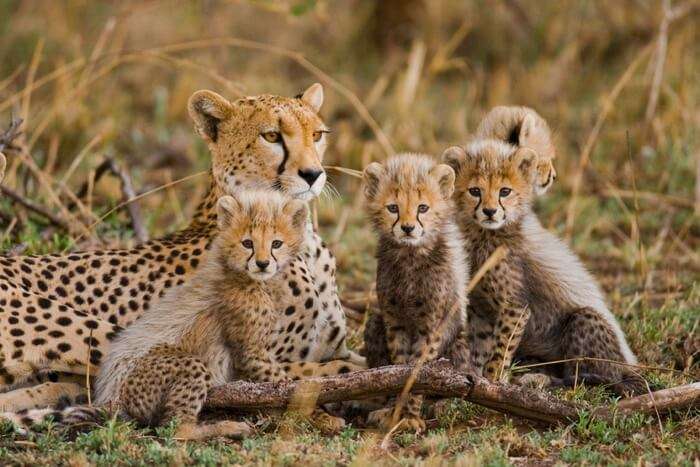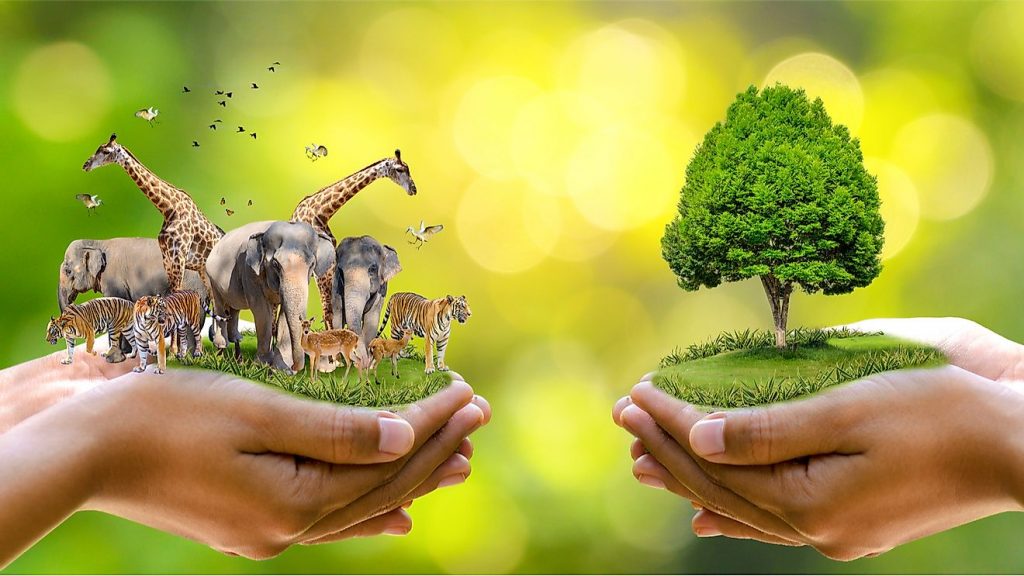Why wildlife matters? Because of our pets, wildlife is important. Willing wildlife enriches our surroundings with both inherent and naturally beautiful. It gives us a welcome break from the hustle and bustle of life. We have a habit of forgetting how important wildlife is to maintaining equilibrium in the natural environment because of our hectic lifestyles.
And as an additional benefit, we are conserving and preserving our natural environments and the wildlife that depends on it. Humans, on the other hand, prefer to just get in the path of their progress.
The Value and Vital Importance of Wildlife
Why wildlife matters? Ecological balance relies heavily on wildlife. The ecology functions as a stabilizing factor in a wide range of processes on the earth. For psychological and economic reasons, wildlife and ecology have been widely linked with humanity. Ways in which people can benefit from studying wildlife include ecology, economy, and scientific advancement.
Wildlife have also provided mankind with food, clothes, and revenue. Even without help of wildlife, our lives would be extremely difficult. All Humans are also a component of the ecosystem that keeps the world in harmony. It is extremely essential in our daily activities.

Here are some important factors mentioned Why wildlife matters:
- Relevance to the environment – Why wildlife matters
Wildlife contributes to the entire ecosystem of environment. Carnivores’ deaths cause a rise in herbivores. As a result of a lack of resources in the jungle, they migrate to agricultural area and damage our plants. Research proves that wildlife, especially carnivores, can preserve natural balance.
Massive predator, such as animals, are one of the main reasons for environmental performance. Destabilization of harmony and security can lead to a variety of difficulties as a result.
- The relevance of economics – Why wildlife matters
Using wild animals as a source of revenue seems possible. Nutrition, medicines, lumber, textiles, and other wild plant items have economic worth. Wildlife provides us with the raw materials needed to launch any type of business.
One of the major drivers for increasing and improving world trade involves wildlife. It also benefits farmers the most by improving plowing and other farming operations. As a result, wildlife has enormous economic worth for everyone. Because wildlife provides a source of money for many people, it plays an important part in their lives as an economic aspect.
3. Investigatory importance
Why wildlife matters? Science uses wild animals for tests, such as determining the effectiveness of a drug. On the whole, animal models, such as monkeys, chimpanzees, and the like, also typically used in research.
Because rats have a similar nature and body design to humans, scientific tests can be conducted with them. Wildlife, without a question, is a strong supporter of scientific study.
- Wildlife relevance in Agriculture
Agricultural modernization depends heavily on wild animals. The following are some of the reasons why wildlife is important in agriculture and Why wildlife matters:
- The development of a new hybrid type utilizing plants found in the wild.
- The primary goal of this project is to breed superior hybrid varieties of animals that are employed for agriculture with wild animals.
- Extensive diversification of animals becomes possible because of them.
Wildlife such as cows and buffaloes assist in agricultural production by plowing or fertilizing the soil. Many microbes and small creatures such as snakes, for example, also contribute to soil quality. Farmers often supposed to have microorganisms as their allies.
Earthworms, for example, consume soil and aid in the breakdown of decaying remains before adding humus to the soil. The fertility of the soil will improve as a result of this.
Reasons to Protect Wildlife – Why wildlife matters
Nature is a great blessing from Heaven to this world, and it ought to be protected. All feral life species were also included under the word “wildlife.” Wildlife, flora, and marine creatures are just as vital as humans. Every species on the planet has a specific role in the food chain that contributes to the environment.
- To Ensure a Healthier Environment
Wildlife is important in maintaining the ecosystem since it helps keep the environment safe and wholesome. Animals and plants waste provide food for a variety of microorganisms, viruses, slime molds etc. Remove them and then release their chemical breakdown products deep into the soil. By refilling the soil with nutrients, the roots of plants can grow and flourish. Awesome! The truth is, the effort is not over.
Do you aware that despised creatures like hawks and eagles contribute greatly to nature? Such predators help clean up the environment by removing dead animals. Consider a life in which we are encircled by strata of undecayed and unrotten rotting corpses. Thank you to these creatures for assisting us in maintaining a good standard of living.
- For leisure purposes
Why wildlife matters? Wildlife viewing is important for your tourism industry. Where will you go for wildlife tours, nature shooting, if there are no woodlands? The Earth’s habitats – forests, oceans, ponds, and rivers – are all under threat, which makes this a great moment to start thinking about them.
It wouldn’t be long, given how quickly humans are disrupting nature. When we will only have a few possibilities for outdoor pleasure in the bosom of Natural Beauty. If we don’t start thinking about conserving the wildlife now, we won’t be able to save it later. There will come a time when we will no longer take our children to museums and natural parks.
- The economic well-being of people – Why wildlife matters
Animals are a major source of revenue for many people, and many depend on them because of their daily survival. As an example, let’s look at the simple scenario of fisherman who rely heavily on their everyday catches for their livelihood.
And then there are the farmers who depend on a robust crop output to make a living. Similarly, numerous sectors like textile, paper, lumber, and rubber heavily rely on wildlife. Another example is hotels and resorts that are located near animal parks. Unless the forest and its wildlife are protected, it will draw people to their resorts, increasing their earnings.





More Stories